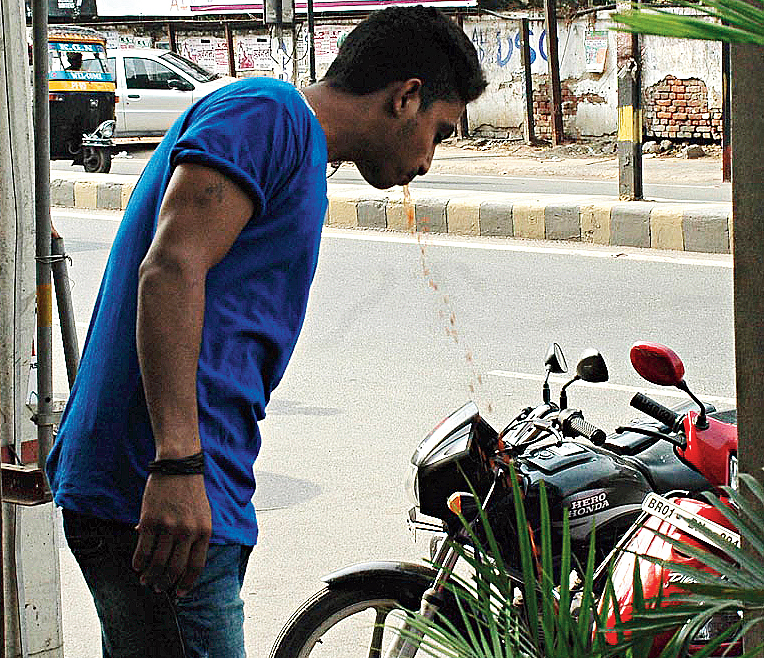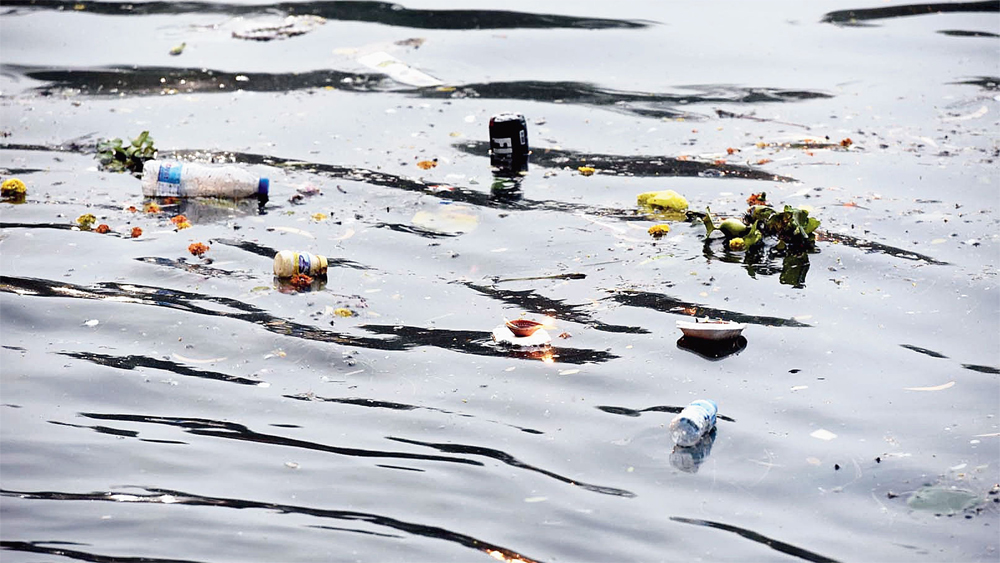The recent air pollution of severe proportions in cities like Calcutta and New Delhi resulted from a failure to comply with a Supreme Court order that banned firecrackers during Diwali. The unabated pollution from fireworks cannot be blamed on politicians and the police alone. We as citizens have to take full responsibility for this. We failed, in this context, to show consideration for other people and their well-being. Communities with good civic sense would be expected to refrain from violating such an order. Perhaps a court edict would not have been necessary at all. In India, however, we have a penchant for breaking rules and violating regulations for personal benefit or from sheer disregard for the law. This is extremely pervasive and is hard-wired in our minds. This kind of behaviour cuts across economic class, ethnicity, religion, gender and age. This, almost universal trait in our country, is not supposed to be an indication of a civilised community by any stretch of imagination. We are usually very proud of our ancient civilisation and our culture. If one indicates any signs of scepticism about the glory of the nation’s ancient past, then the person is immediately labelled ‘anti-national’. Is there any relationship between being anti-national and being uncivilised? There might be, because by implication the anti-national is not fully convinced about the glorious civilised past.
I think it is important to distinguish between a ‘civilisation’ and ‘being civilised’. The former is a historical assessment of the state of affairs of a society where there was some structure and order, and rules that governed were reasonable and open to revision. Over and above this, certain shared beliefs are supposed to be commonly held by the large majority like valuing peace, tolerating differences and diversity, not hurting others, especially those less powerful, and obeying the basic rules of governance. These beliefs are expected to be universal across civilisations. Traditions, customs and practices that constitute a culture could be different from one civilisation to another. Hence, while civilisations can vary quite a bit, being civilised does not. Therefore, it is a legitimate question to ask: to what extent are we civilised as a nation even though we have an ancient civilisation in our past?
To seek an answer to this, I will take three spheres of everyday living in India to illustrate what can be gleaned from our social behaviour. The first instance is traffic on the streets of the nation. How do drivers and pedestrians behave? We have subways, autos, rickshaws, motorbikes, bicycles and, of course, hordes of pedestrians. We have automatic traffic signals, policemen on the streets, cameras in busy intersections, pedestrian crossings and signs to aid traffic movements. However, traffic lights are disobeyed by pedestrians, bicyclists and rickshaws almost all the time. So do motorbikes, taxis, trucks and buses. Private cars are not exceptions either. A Mercedes or a Jaguar will zip through an intersection when the lights are red and when there is no policeman around. Given an opportunity, we drive on both sides of the street, we do not stick to lanes; we honk for the sake of honking and regularly pass other vehicles from the wrong side. We do not give way to ambulances. We do not wait for elderly persons or physically challenged individuals to cross the street. Garbage is routinely flung out of windows of expensive cars. Drivers can be seen talking or texting on their cell phones.
Now, traffic rules are necessary (unlike many other laws in society) not because of any power games or ideology of the rulers. Without these rules, mobility would be impossible. Hence these are distinctly different from, say, the imposition of taxes or governmental rules pertaining to subsidies given to farmers. Traffic rules are something without which society cannot function at all. They are also fair and unbiased. The Jaguar and the Tata Nano face the same rules. A CEO of a company or a coolie at the Howrah station has to obey the same set of traffic signals. Hence, it is difficult to claim that these rules are biased in favour of the rich and the powerful or can be politically manipulated. Yet our continuous, flagrant and arrogant flouting of rules is characteristic of being uncivilised, displaying foolish risk-taking propensities, extreme selfishness and utter disdain for others. We have a rich civilisation, but are we civilised?
The second sphere of everyday life considered essential to democracy is the possibility of meaningful debate and discussion about public life and problems. These take place in today’s world mainly in the electronic media like television, the social media and, of course, by public representatives in legislative houses like Parliament and assemblies. There are other fora too, like policy-making committees and academia, but they are not as public in the sense the ones mentioned earlier are. The argumentative Indian made famous by Amartya Sen does not listen to others. He believes in monologues. We regularly witness what happens in Parliament and assemblies in the name of debate. There is indiscriminate shouting to drown others’ voices. There is a curious lack of politeness as a result of which most people feel having an argument means being necessarily rude. Then, come to the news channels: the English ones as well as the ones in regional languages. Anchors cannot (or do not want to) control people who speak simultaneously. Nothing can be deciphered from the din and pure noise. Indeed it appears that most commentators run out of things to say so soon that the speakers start slanging matches. Sometimes, the anchors join in the fray and a free-for-all follows for the next few minutes till it is time for a commercial break. Once again, are we civilised? Try listening to other international channels. Serious conversations are held and a diversity of opinions aired; yet it is perfectly possible for the viewer to comprehend what the commentators said and to come to some informed opinion on the issue.
The third and final sphere I wish to mention is the propensity to cheat. This is not only corruption in an economic sense where monetary gains are to be obtained. It is any form of unfair advantage — jumping and breaking a queue, cheating in examinations, breaking rules like bursting loud and toxic crackers, shirking at work and telling lies. Then there are the bigger forms of cheating, like enormous bribes, kickbacks, speed money, large scale adulteration of food or medicines, fudging accounts and giving gifts against favours received. Cheating and corruption are so rampant that these have become part of everyday transactions. No one is surprised at all if a bribe is demanded or a bribe is given. It is no longer surprising: policemen and government officials do it, bankers do it, teachers and professors do it, doctors do it, accountants and lawyers do it. The phrase used is: it is the ‘done’ thing. Does being civilised condone cheating and corruption on such a wide scale?
Being a nationalist is rather easy. It is mostly about waving flags, painting one’s face with the national colours, standing during the singing of the national anthem and not questioning what political leaders are saying. Being civilised is a lot more difficult. One can be a strong nationalist without being civilised. One can also be civilised without having to wave flags and paint one’s face like we see in an expression of carnival nationalism in cricket stadiums. Will some far away historian or anthropologist refer to us a great civilisation? I wonder.













